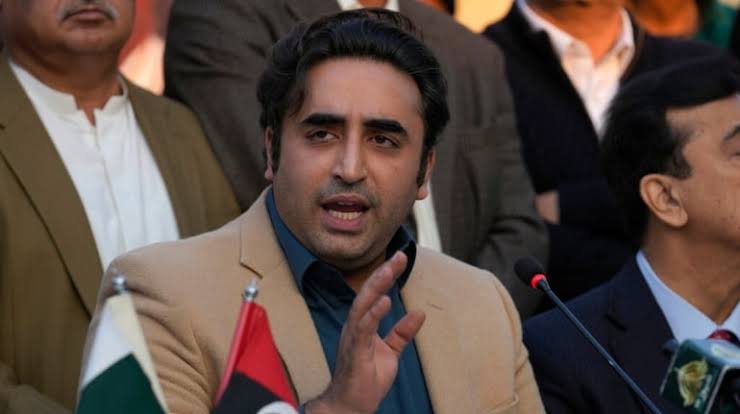PPP President and former Foreign Minister Bilawal Bhutto-Jardari’s attitude is now softened. Now he has said that cooperation between Pakistan and India’s intelligence agencies can reduce terrorism in South Asia significantly.
According to a Dawn newspaper report, the President of the Pakistan People’s Party (PPP), who is leading a high -level delegation in the US as part of a global diplomatic effort to get support with India, was speaking at a press conference at the United Nations Headquarters on Tuesday.
On Wednesday, the newspaper quoted Bhutto-Zardari as saying, “I am confident that if ISI and RAW are willing to work together to fight these forces, we will see a notable decrease in terrorism in both India and Pakistan.”
He urged the global community to remain active in South Asia and warned that the threat of conflict between the neighbors rich in nuclear weapons after the recent ceasefire has not decreased, but has increased.
Bhutto -Zardari said, “With the intervention of the international community – and I would like to mention the role played by his team led by US President Donald Trump and External Affairs Minister Marco Rubio – we were successful in holding a ceasefire between India and Pakistan. This is a welcome step, but it is only the first step.”
The tension between India and Pakistan increased after the Pahalgam terror attack on 22 April, and on the morning of May 7, India made accurate attacks on the terrorist infrastructure in Pakistan and Pakistan occupied Kashmir. Pakistan attempted to attack Indian military bases on 8, 9 and 10 May. The Indian side strongly responded to the Pakistani action.
On May 10, the ground hostility ended with the consent to stop military actions after negotiations between the Director General of Military Operations of the two sides.
Trump claims that the US has stopped India and Pakistan from fighting. However, India has been continuously saying that agreed to end enmity with Pakistan was formed after direct talks between the Directorate General of Military Operations (DGMOS) of the two armies.
Bhutto-Zardari emphasized that diplomacy and talks are the “only practical path of peace”, and they reiterated Pakistan’s desire to hold extensive talks with India, including anti-terrorism cooperation.
He said, “Pakistan would still want to cooperate with India to fight terrorism. We cannot leave the fate of 1.5 billion, 1.7 billion people in the hands of non-government elements and terrorists. They should let them decide on their own choice when (these) two atomic-skills powers will enter the war.”
Referring to India, the PPP leader said that “any terrorist attack in the region is” unacceptable “to link the threat of war with Pakistan. He said, “There can be no dispute solution mechanism between two nuclear-skills countries.”
He proposed the establishment of a mutual consent platform where the two sides could file complaints, jointly investigate the terrorist incidents and work together to ensure accountability. Repeating Pakistan’s stand on India’s move to suspend the Indus Water Treaty (IWT), Bhutto-Zardari said it is an attempt to “make water a weapon”.
After the Pahalgam terror attack, in which 26 people were killed, New Delhi, among other punitive actions, announced the suspension of the 1960 Indus Water Treaty Agreement, which controls the water sharing between India and Pakistan.
Bhutto-Zardari said, “The threat of closing of water supply of 200 million people is just a violation of the United Nations Charter. Action on this threat will be seen as war action by Pakistan.”
According to a Dawn newspaper report, the Pakistani delegation had earlier met UN Secretary-General Antonio Guterres and UN Security Council President Guyana Ambassador Caroline Rodrigues-Bercate in New York.
